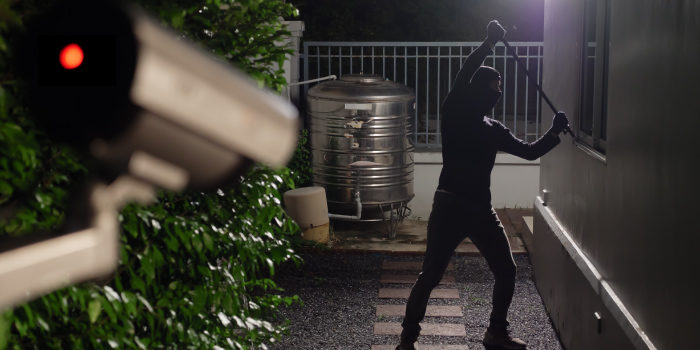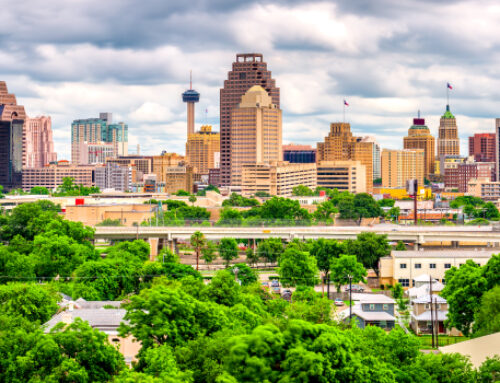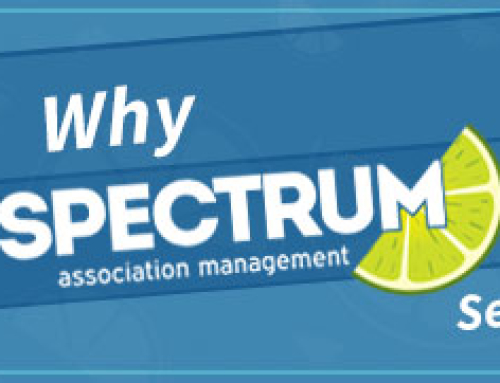Safety is every community association’s priority. Although homeowners associations were not created or designed to provide security for the neighborhood, HOAs typically do use lighting, security cameras, gate locks and electronic access cards to help keep their communities safe. However, there are additional precautions that an HOA can take that may sometimes be overlooked. Below, we have created a guide detailing several of these less obvious HOA safety tips, in hopes of helping you and your HOA build a safer community atmosphere.
CO Poison Prevention
Carbon monoxide, or CO, is a poisonous gas that can be particularly dangerous because it is colorless and odorless. Headache, nausea, dizziness and even permanent brain damage or death can occur. People die each year from accidental CO poisoning.
To prevent CO poisoning in your home, be sure to educate your family about the following causes of CO poisoning and how to prevent exposure to this deadly gas:
• Install CO detectors throughout your home: This is incredibly important, especially in hallways near sleeping areas, and follow the manufacturers’ instructions for testing and replacing. Keep detectors unobstructed by furniture or draperies.
• Never use your gas oven or clothes dryer to heat your home: Do not cover the bottom of natural gas or propane ovens with aluminum foil; doing so blocks the air flow through the appliance and can produce CO.
• Do not use portable generators indoors: This includes in garages, carports, storage sheds and the like, even with doors and windows open. On that note, never leave a car running in a garage, even with the garage door open. In both instances, CO can quickly build to lethal levels, whether the space is fully or partially enclosed.
• Do not place pressure washer engines indoors: When using pressure washers outdoors, keep engines away from open windows, doors or vents during use, as CO can seep inside through the openings.
• Hire qualified professionals to install new furnaces and appliances and to inspect and service your HVAC system, chimneys and flues: Never service fuel-burning appliances without proper knowledge, skills and tools; you should always refer to the owners’ manual when performing minor adjustments or performing maintenance on fuel-burning equipment.
• Never use portable fuel-burning camping equipment or burn charcoal indoors: In particular, do not operate unvented fuel-burning appliances in any room where people are sleeping.
Above all, remind members of your community of the basic facts and prevention techniques associated with CO poisoning; it could save lives.
Landscaping to Deter Criminals
Since criminals usually like to take their victims by surprise, they tend to commit crimes in places that offer hiding spots. Dense hedges and bushes or trees with low hanging foliage can provide perfect cover for criminals. To eliminate these hiding spots and help reduce the potential for crime, the Board and HOA management company should assess and possibly change the community’s landscaping. Doing so could also help reduce the association’s liability for any crimes that do occur.
Making your HOA landscaping safer doesn’t need to be expensive or involve major modifications to your existing landscaping. Use the following tips to make your homeowners association’s landscape safer:
• Plant thorny shrub barriers: Criminals like to have multiple points of entry and exit. By limiting the number of entrances and exits at the community, criminals will be less inclined to make a stop there. Installing thorny shrub barriers at the perimeter of the parking lot and between your HOA and the neighboring community can limit the number of entrances and exits for criminals.
• Trim the height and width of shrubs: With the exception of thorny shrub barriers, overgrown shrubs that are easy to hide behind and can actually increase crime. The way to eliminate these hiding spots for criminals is to trim the height and width of shrubs in the parking lots and other common areas.
• Trim tree canopies: Trees with low or overgrown foliage can be a perfect place for a criminal to hide while waiting for a victim to pass by. The Board and HOA management company can work with the landscaping company or professional tree trimming company to trim the trees to a safe level. Also, make sure that the trees don’t become overgrown to the point where they obscure lighting. Improperly lit areas create another advantage for criminals.
• Flatten berms: Many HOAs have berms in front of them. Often, these berms are covered by grass or flowers. But if the berms are planted in front of the parking lot, they can obstruct the view of the parking lot from the street. This reduced visibility may make the parking lot a more attractive target for criminals. If the association has berms that are obstructing the view from the street, consider flattening them.
For further information, contact your HOA Management Company or professional landscape company.
Self-Defense through Home Preparation
In some homeowners associations, after a burglary has taken place, the victims and neighbors may approach your HOA Board members with requests for increased security patrols, fences, gates, and alarms. After proposing different safety options and requesting bids, it becomes apparent that such options are not very cost-effective, especially when compared to the security measures each individual resident can take in securing their home. In addition to having an active Neighborhood Watch program, each homeowner can make one or more of these one-time investments to better secure their homes against intruders:
• Install a home alarm system registered with the police department: This way, should your alarm go off, you will immediately be notified.
• Install a dead bolt on your doors: Or install a locking pin if you have sliding exterior doors. Regardless of which, just locking your home can deter criminals.
• Inventory your property: Also, make sure your insurance is up to date with the current value of your belongings. If you do not, robberies could go unnoticed at great monetary loss.
•Leave a light on or set a timer to turn on a light in the evenings: This is especially important if you are going to be away overnight. One of the biggest robbery deterrents is the illusion that someone is awake and home, so just leaving your light on at night can stop a potential burglary
• Don’t allow your mail or newspapers to pile up if you’re away from your house for several days: Arrange to have a neighbor collect your mail and pick up your newspapers while you’re gone, so your mail isn’t vulnerable to theft and your home doesn’t appear dormant.
• Don’t leave a key under a door mat, flower pot, or other common hiding place: These are the first places burglars look when attempting to gain access to your home. Consider using an exterior lockbox, if you need your extra key in a reachable place.
- Implement a community policy of “See Something, Say Something”: If you notice a crime or a suspicious activity, regardless of how small the incident may seem, notify your HOA board members or HOA management company, association security (if applicable), and the police immediately.
The neighborhood HOA may relax architectural controls to allow owners to equip front doors with any locks, deadbolts, or other common security devices without seeking ACC approval, so long as they are visually unobtrusive and do not significantly impact structures. If you have questions about security modifications you’d like to make, don’t hesitate to call your HOA Board members or HOA management company.
Build a Strong Relationship with Local Police
Of course, even with all this, there’s no guarantee your community will be safe. But, one of the best—and most effective—ways to fight crime in your neighborhood is to build a strong relationship with your local police. Here are several methods for establishing an accord with local law-enforcement:
• Identify your community liaison: It’s good to know who that person is and to build a relationship. Invite that person to your association meetings and to make a presentation. If your local police department is small, get to know the chief by asking for a meeting. Then, when a problem develops, you’ve got someone to work with. You don’t want your only contact with police to be when there’s a problem.
• Be reasonable: Remember that the police are the experts, and it’s never a good idea to assume you know more than the experts. You shouldn’t insist that the police do a particular thing without listening to their solution. They may not be able to implement your solution. Instead, use a partnership approach by asking for help in a more open-ended way.
• Respect officers’ time: Make sure your residents minimize their nuisance calls to the police department. Oftentimes, the police department becomes very familiar with a community or building if, for example, you have residents who have alarm systems and frequent false alarms. Remind everyone that incidents like that affect the community. Ask neighbors to have their alarm systems checked so they don’t go off accidently.
• Adopt-a-Cop: You don’t have to issue a formal invitation. Your HOA area is likely to have a program called (or similar in nature to) “Adopt-a-Cop,” where community members invite officers over for dinner or to community gatherings. This way, residents can see the officer as a person outside of the uniform.
• Support police events: If your police or fire department is sponsoring an event, your association can score points by lending a hand. The police or fire department could probably use the help, and you’ll be establishing goodwill. Police officers tend to know who appreciates their services and will reciprocate in kind.
Overall, having a healthy relationship with your community’s local police force will make your neighborhood more likely to receive special consideration when problems do occur. The police benefits from your support and involvement, and you benefit from their protection.
Keep Residents Informed
If your HOA has a newsletter, use it to pass on valuable safety information, security information, and HOA tips to your residents. Keep your community updated on causes of CO poisoning and prevention techniques, self-defensive home preparation, safety plans, and crime prevention tips and recent reports of problems in the area.
If your HOA does not have a newsletter, now might be the best time to start one and open the lines of communication in your community, encouraging a dialogue over accident and danger prevention. If everyone is informed, then it becomes that much easier for people to participate in maintaining a safe living environment for all residents. Trust us; community security is of major import to boards and homeowner associations. Get your ducks in a row, and make absolute certain you all can sleep safely at night.







